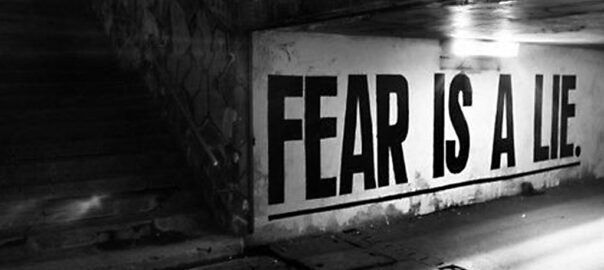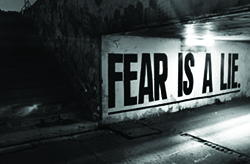 By Kevin Ferrisi –
By Kevin Ferrisi –
Ever hear of writer’s block? It doesn’t just happen to writer’s, it happens to creators all over the world. Being creative at the drop of a dime sometimes is a very difficult challenge. Most freelancers depend on their creativity for their livelihood. Freelance writers, designers, artists, photographers, and even web developers and programmers all rely on creative thinking to perform their jobs.
However, occasionally a freelancer finds that their creativity; that same creativity they’ve been relying on to earn an income; just isn’t there. The ideas just aren’t flowing like they usually do. I’ve been there, you’ve been there, we have all been there.
Here are 5 things I do when I am having a creative block:
1. Meditate
Tap into something greater than yourself. Let the creativity flow through you. Becoming aware and clearing your mind sometimes is all you need to open the gateway of unlimited creativity. Taking a few minutes to clear your mind will allow a space for new ideas to manifest. Buddhists, teachers and monks have been practicing meditation for hundreds of years. Some of the most successful entrepreneurs and creatives in the world practice it too to clear their minds. We all want a clearer picture of what’s ahead of us but, sadly, we can’t look into the future. What we can do, however, is sharpen our minds through meditation.
2. Exercise
Sometimes your creative juices just need a jump start like a rusty old car battery. Don’t be afraid to step away. Try to distance yourself from the project; take a break and come back to it with a clear head. Exercise is the most effective way to improve memory and attention. When you exercise, new brain cells are born in the brain’s gateway to new memories. In addition to stimulating new brain cells, exercise also leads directly to brain cells binding to one another. It’s a no-brainer; pun intended; that moving your body makes you smarter.
3. Research
See what others are doing. Immersing yourself in certain arts or cultures that you wouldn’t normally be interested in could lead to interesting inspirations. Explore what is out there and what has been done, what has worked and what hasn’t. Research can spark ideas faster than a tree in a wildfire and generate concepts that you might not have thought of. In college, they always taught that the number one rule in the creative process is research. And now being out in the field I understand the need more than ever.
4. Environment
Go work somewhere else entirely. You’d be amazed at where new ideas are hiding out. They’re often where you would least expect them to be. Often, most of us work in the same chair, at the same desk, in the same room day in and day out. This could leave to a creative dry spell. Being a freelancer, like most freelancers, I get to work from where ever there is an electrical socket and a wifi signal. If you can’t get out then bring something new in. Put some fun in your space. Doesn’t matter if it is listening to a completely different type of music than you usually do or redecorating your entire space. Surround yourself in something new and different so your thoughts can follow suit.
5. Sketch It Out
Whether it is a list of words or drawing stupid cartoons. Write your main ideas down in columns, and list absolutely everything that comes to mind. You can mix and match the lists for unusual and original combinations. Ideas will start to connect in your mind and before you know concepts snowball into an avalanche of success. Always carry a sketch pad. Write down any ideas as they come to you. Don’t go looking for inspiration. Let it come to you and capture it.
Being creative is definitely fulfilling but often times difficult. Next time you find yourself with an unsharpened pencil and just need a sharpener, try these techniques that I have found to work brilliantly.



 By Kevin Ferrisi –
By Kevin Ferrisi –

